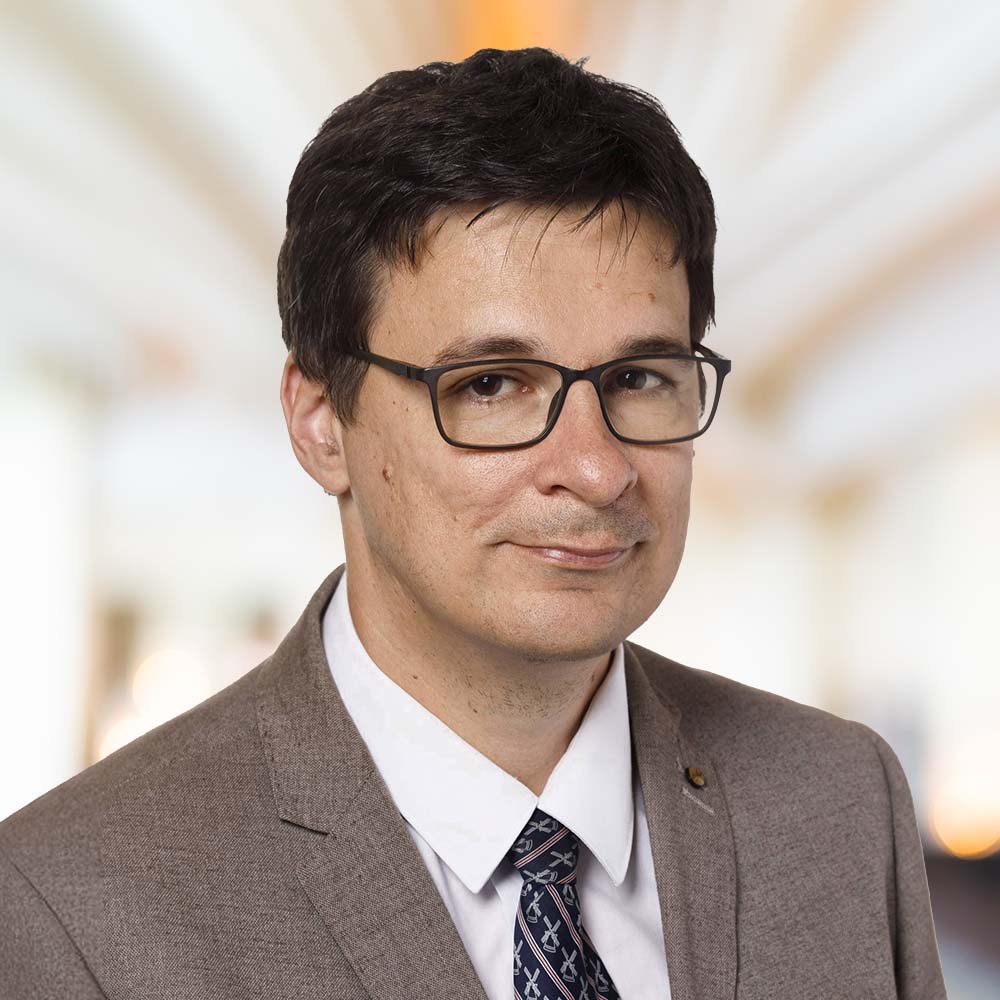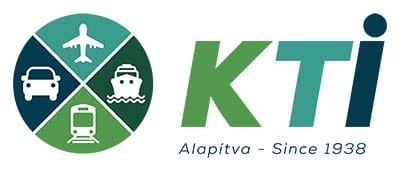In this interview, Balázs Ács, Head of Integrated Transport Services at KTI (Hungarian Institute for Transport Sciences and Logistics), discusses the institute’s growth, its key milestones, and the importance of its long-standing collaborations with Japanese partners, particularly in the fields of transport research and innovation.
Bridges: Could you describe the growth story of KTI and highlight some of the key milestones in its journey, particularly in relation to Japanese-Hungarian relations?
Ács: KTI (Hungarian Institute for Transport Sciences and Logistics) has been operating since 1938, primarily as a research institute. Its activities have gradually expanded, and today it covers traffic safety, education, examinations, traffic organization, network planning, timetable planning, environmental protection, and the management of TRANSMODEL databases. Research is being conducted in the fields of transport economics, road construction, car engines (e.g. in collaboration with Suzuki), and noise and environmental protection. KTI has a wide international network of contacts, primarily within Europe (FEHLR, FERSI, ECTRI, AIPCR, CARE, IRTAD, UITP, EUROTRA), but also participates in projects in the Far East, such as demand responsive transport, research collaborations, and guest lectures.
What are some of the key milestones and achievements of KTI over the years, particularly those relevant to Japanese connections?
KTI’s oldest cooperation is with Suzuki, which operates a Hungarian car factory. Scientific colleagues Vilmos Oszter and Balázs Ács maintain personal relations with Japanese partners in the scientific field. Vilmos Oszter deals with regional research and maintains contact with many Japanese researchers who visited KTI in 2019, and Vilmos gave a guest lecture at Kansai University in 2023. Balázs Ács graduated from University of Tsukuba, majoring in international relations, then earned his master’s degree in public policy management, his research field is transportation economics, timetable planning and regulation. He represented KTI at the Embassy of Hungary in Tokyo in 2017 on the Hungarian-Japanese Business Forum held during the visit in Japan of the business delegation of the Hungarian Chamber of Commerce and Industry on 23 May 2017. He won the Best Paper Award at the 2019 World Conference on Railway Research held in Tokyo.
KTI supports the wide spread of innovative ideas and products, the harmony of intellectual and physical solutions, and supports transport policy decisions. The scientific and practical staff of KTI not only follow, but also adjust the trends in the direction of a sustainable transport system.
Balázs Ács, Head of Integrated Transport Services at KTI (Hungarian Institute for Transport Sciences and Logistics)
When a transportation related delegation from Japan visits Hungarian Ministry of Transport, KTI is typically represented at the meetings.
How does KTI view the current trends and challenges in the transport and logistics industry, and how is it adapting to these?
The current challenges for transport are digitization, electrification, environmental protection, economic efficiency, smart solutions, the use of big data, competition and regulation. KTI supports the wide spread of innovative ideas and products, the harmony of intellectual and physical solutions, and supports transport policy decisions. The scientific and practical staff of KTI not only follow, but also adjust the trends in the direction of a sustainable transport system.




